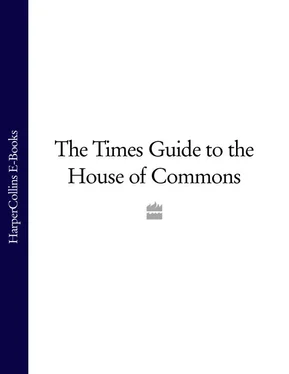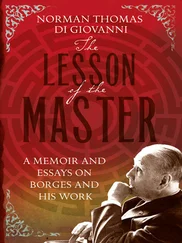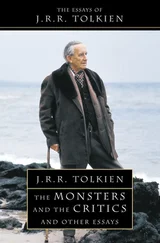In his four years as Leader of the Opposition, from January 2006 to May 6, 2010, a record £122 million went through Tory coffers, by any international political yardstick an extraordinary amount. Barack Obama’s presidential campaign committee in 2008 raised £450 million. That was to fund a campaign that won decisively in a country where campaigns hinge on TV advertising and with an electorate five times the size. In domestic terms this figure is also striking: Labour’s income was £71 million over the same period, although £22 million of this came while Tony Blair was still in office. It also beats sums raised in previous Parliaments: the Tories’ income was £49 million and Labour’s £61 million between 2001 and 2005.
Perhaps more intriguing is the limited impact that this vast spending appeared to have. By Mr Cameron’s own yardstick, set in a Spectator interview shortly before polling day, his own campaign was a failure. The Conservative vote increased by 3.8 percentage points on its 2005 vote: an increase of 2 million votes net, or, taking into account the higher number of votes received by rival parties, 1.1 million more than last time. In other words, every additional vote cost the Tories £111.
What is more, for the shrewd financial investor, the archetype of the modern Tory donor, the way the Conservative Party operated under the stewardship of Andy Coulson, Steve Hilton and ultimately George Osborne as general election co-ordinator, must have seemed horrific. At a national level, half a million pounds was gambled on cinema advertisements that were never shown, £400,000 on a January 2010 “cut the deficit not the NHS” poster campaign later disowned by some senior figures. About half a million was spent on a much-ridiculed “don’t be a tosser” campaign on the national debt and the same sum again on a national newspaper campaign to recruit internet “friends of the Conservatives”, which was never mentioned again by the leadership.
The previous Parliament brought the downsides of political giving into sharp relief. Of these, the loans-for-peerages saga, which overshadowed Mr Blair’s final year in office, was perhaps the most seismic, involving the Prime Minister and senior staff, 136 people questioned by Scotland Yard’s Special Crime Division, 6,300 documents handed to the Crown Prosecution Service and four people arrested, including a Downing Street aide at dawn. At its heart was an allegation, never tested in a court and strongly denied by all those involved, that Labour figures seduced wealthy donors with promises of peerages in return for vast secret loans to bankroll the party through the 2005 election campaign.
It came to light in 2006 after it emerged that four Labour supporters had been turned down for peerages by the House of Lords Appointments Commission. Chai Patel, the founder of the Priory healthcare group, publicly complained after his application was leaked to a newspaper, then rejected. It soon emerged that three other businessmen were put forward for peerages – Sir David Garrard, Sir Gulam Noon, and Barry Townsley – having all made huge loans to Labour before the election at the behest of Lord Levy, Mr Blair’s gregarious fundraiser. Sir Gulam even revealed that he had been told by Lord Levy to remove references to his £250,000 loan to Labour from his peerage application form.
Despite an ignominious political tradition of peerages for donors, epitomised by Harold Wilson’s Lavender List, opposition MPs started complaining that there had been a breach of the Honours (Prevention of Abuses) Act 1925, introduced after David Lloyd George sold honours for cash. An initial inquiry by the Public Administration Committee was halted after Scotland Yard agreed to investigate a complaint by Angus MacNeil, a Scottish Nationalist MP. The police investigation was initially treated lightly by Downing Street, until a number of arrests culminating with that of Lord Levy, who was brought in for questioning. Ruth Turner, an aide to Mr Blair, was arrested at dawn and questioned under suspicion of perverting the course of justice. The inquiry had reached the heart of No 10. In December 2006 Mr Blair became the first serving Prime Minister in history to face a police interrogation, seeing officers three times in Downing Street.
Mr Blair’s staff had raised the stakes, warning Scotland Yard that the Prime Minister would resign if he was arrested while in office. In fact, Mr Blair left office before the investigation was complete. After 16 months, the inquiry was dropped without charges by the Crown Prosecution Service. The CPS said that it had never intended to go to court unless there was “unambiguous agreement” between two people that a gift would be made in exchange for an honour, adding: “There is no direct evidence of any such agreement.”
Officers in the Speciality Crime Unit, which had pursued the case, were unhappy. They believed that they had two strong pieces of evidence: the diary of Sir Christopher Evans, who loaned money to Labour and was later arrested, which detailed conversations with Lord Levy. Detectives believed that this provided “spectacular” evidence of what they interpreted as an agreement for Sir Christopher to be ennobled in return for the loan. Detectives had also discovered that Downing Street officials initially drew up a plan to give peerages to eight of the twelve businessmen who secretly bankrolled Labour’s 2005 general election campaign: four more than had been thought.
The reason for the CPS decision, apparently late on in the investigation, to demand “unambiguous” evidence as the basis of a criminal case and thus rule out the use of the two strongly circumstantial pieces of evidence in police hands remains a mystery. The investigation, which spanned the transition of power from Mr Blair to Gordon Brown, highlighted the culture clash between politicians and police, with the friction between both sides often played out in the media. It highlighted the levels of ignorance among many officials about the electoral reforms Labour had brought in during the first Parliament but now showed little sign of bothering with. It also came as the Labour Party was adjusting to life without large numbers of individual donors, forcing a return to a reliance on trade unions.
By the end of the Parliament, notions of abandoning the union link, once aired by Blairites such as Alan Milburn, seemed fanciful. At the lowest point in its popularity early in 2008, union funding accounted for 92 per cent of donations to Labour, amid claims that the party was solvent only because of a guarantee from Unite, the super-union, that it would never allow it to go bust. In November 2007, it emerged that Labour’s third biggest donor, David Abrahams, had concealed his identity and given hundreds of thousands of pounds in the names of his secretary and a builder, illegal under electoral law. Mr Abrahams, a colourful Tyneside lawyer, said he had done so to avoid the limelight. Facing a police investigation, Mr Brown fired the Labour general secretary, Peter Watt, who carried the can for the arrangement set up by his predecessors. In May 2009 the CPS decided again that there was insufficient evidence for any prosecution.
The police also investigated the admission in December 2007 by Peter Hain that some donations to his own campaign to become Labour’s deputy leader “were not registered as they should have been”. The police inquiry, at the request of the Electoral Commission, cost him his post as Work and Pensions Secretary. He was cleared 11 months later, however, after prosecutors questioned the watchdog’s interpretation of the law, suggesting that no one involved in Mr Hain’s campaign could be prosecuted.
This was one of several uncomfortable moments for the Electoral Commission. In its first full term between 2001 and 2005 the watchdog, which oversees money in politics, was regarded as a largely benign if somewhat bureaucratic body. But its failure to see that political parties were taking out huge secret loans led to accusations that it was unfocused, too passive and failed to use its powers to investigate allegations of wrongdoing. It defended itself vigorously, saying that it could only act using the laws passed by Parliament. Nevertheless, the commission strengthened its investigative capacity and started casting its spotlight elsewhere, bringing its own complications when it started picking over the donations by Lord Ashcroft to the Conservatives.
Читать дальше












